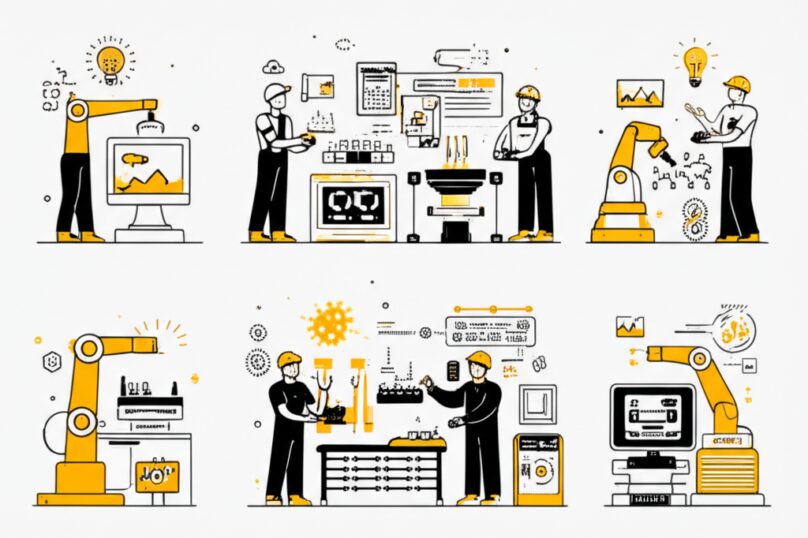The power of Manufacturing & Industry 4.0

Revolutionizing Tamil Nadu’s Industries: The Impact of Industry 4.0
Tamil Nadu, a state known for its thriving manufacturing sector, is experiencing a significant transformation with the advent of Industry 4.0. This technological revolution, characterized by the integration of cyber-physical systems, the Internet of Things (IoT), and big data analytics, is reshaping how goods are produced and businesses operate. Let’s explore how Industry 4.0 is empowering businesses in Tamil Nadu and driving growth across various sectors.
Smart Factories: The Heart of Industry 4.0
Imagine a factory where machines communicate with each other, predict maintenance needs, and optimize production processes in real-time. This isn’t science fiction; it’s the reality of smart factories powered by Industry 4.0. Companies like ABC Manufacturing in Coimbatore have embraced this technology, resulting in increased efficiency, reduced waste, and improved product quality. Their implementation of IoT sensors allows for predictive maintenance, preventing costly downtime and ensuring smooth operations.
Data-Driven Decision Making: Unleashing the Power of Analytics
Industry 4.0 generates vast amounts of data, and effectively utilizing this data is crucial for success. Companies are leveraging data analytics to gain insights into production processes, customer preferences, and market trends. For example, XYZ Textiles in Tiruppur uses data analytics to optimize their supply chain, reduce lead times, and improve customer satisfaction. They analyze real-time data on production, inventory, and sales to make informed decisions that drive profitability.
Automation and Robotics: Enhancing Productivity and Efficiency
Automation and robotics are key components of Industry 4.0. These technologies are enhancing productivity, improving safety, and reducing labor costs. Many automobile parts manufacturers in Chennai have successfully integrated robots into their assembly lines, leading to increased output and reduced human error. This technology has also created new job opportunities in areas like robot programming and maintenance.
The Human Element: Upskilling and Reskilling the Workforce
The success of Industry 4.0 depends on a skilled workforce. Training and upskilling programs are essential to equip workers with the necessary skills to operate and maintain new technologies. Several organizations in Tamil Nadu are actively involved in providing such training, ensuring that the workforce can adapt to the changing landscape of the manufacturing industry. This initiative focuses on bridging the skills gap and ensuring a smooth transition to a technologically advanced manufacturing sector.
Case Study: A Successful Implementation in Tamil Nadu
Consider PQR Electronics in Madurai. By implementing Industry 4.0 principles, they have achieved a 20% increase in productivity, a 15% reduction in waste, and a 10% improvement in product quality within just two years. Their success story highlights the transformative potential of Industry 4.0 in Tamil Nadu.
Conclusion: Embracing the Future of Manufacturing
Industry 4.0 is not just a technological advancement; it’s a paradigm shift that offers immense opportunities for growth and development in Tamil Nadu’s manufacturing sector. By embracing these technologies and investing in workforce development, businesses in the state can gain a competitive edge in the global market and contribute to the overall economic prosperity of the region.
